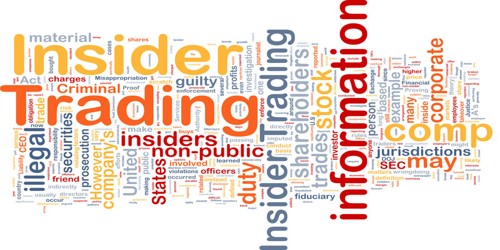Insider trading is the trading of a corporation’s stock or other securities (e.g. bonds or stock options) by individuals with potential access to non-public information about the company. It can be illegal or legal depending on when the insider makes the trade. It is illegal when the material information is still nonpublic. In most counties trading by corporate insiders such as officers key employees directors, and large shareholders may be legal if this trading is done in a way that does not take advantage of non-public information. It is the illegal practice of trading on the stock exchange to one’s own advantage through having access to confidential information.
For example, a manager of corporation ABC who purchases shares of the corporation based on a pending merger declaration is engaging in illegal insider trading. However, once corporation ABC has announced the merger publicly, insiders might lawfully trade the shares based on the information.

The rules governing insider trading are multifaceted and vary considerably from country to country. The degree of enforcement also varies from one country to another. Insider trading is an unreasonable practice, wherein the other stockholders are at a huge difficulty due to lack of vital insider non-public information. However, indefinite cases if the information has been made public, in a method that all concerned investors have access to it, which will not be a case of unlawful insider trading.















